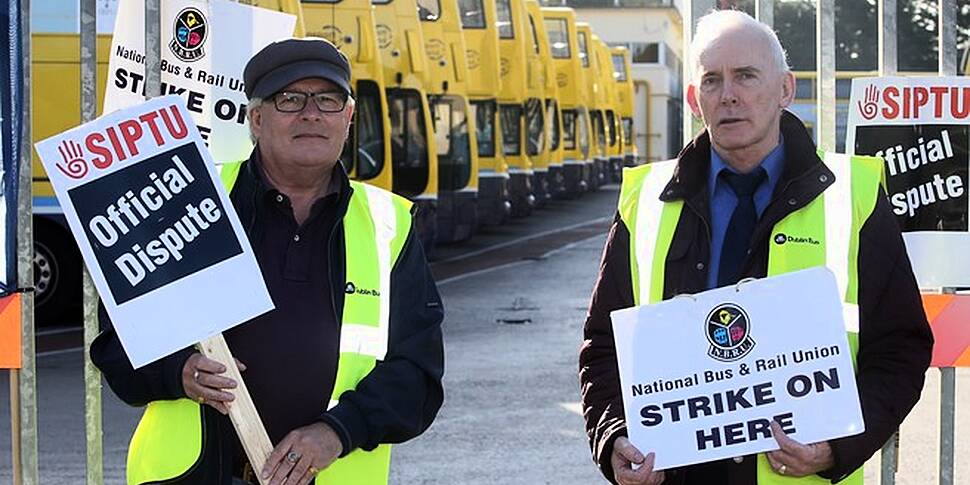The news yesterday that Dublin Bus workers will strike for 13 more days across this month and next triggered a predictable onslaught of anger and resentment.
Online commenters promptly called for their sacking, accusing the workers of greed and recklessness.
According to a survey carried out by Coyne Research, only 24% of people supported the strikers even before the dispute was further protracted.
The outrage is in one way understandable: an estimated 400,000 commuters will face travel disruption, after all.
Extra money, time and effort will have to be spent getting into school and work. For some without access to Luas or train connections, driving or cycling is just not an option.
But strikes by their nature are inconvenient – the point is to highlight how vital the service provided is.
The shorter hours and better pay we enjoy today, compared to a century ago, had to be fought for.
How many employers in history have gifted their workers better terms and conditions without any form of pressure?
Dublin Bus drivers have had no pay increase since 2008, while the 6% rise they were due in 2009 was deferred, and still remains outstanding.
As SIPTU and the NBRU have pointed out, the company returned to profitability in 2014, achieving a surplus of €11.6 million – and €10.2 million the following year (albeit with the help of significant state funding).
This is despite the fact that subvention, given to Dublin Bus for running commercially unviable routes, fell by €2.3 million to €57.7 million last year, compared to 2014.
The state payment accounted for around a fifth of overall revenue in 2015 – a significantly lower proportion than in a number of major European cities.
While subvention levels are difficult to compare, the most recent review in 2009 found that Dublin bus services received a lower subsidy as a proportion of revenue (29%) than operators in Lyon (79%), Brussels (68%), Amsterdam (62%), Zurich (57%) and London (39%).
Income inequality
Many of us who live in Dublin depend heavily on bus drivers: these are men and women entrusted with ensuring the safety of thousands of people every day.
They work long, unsociable hours, and have seen consecutive rounds of cutbacks alongside falling state funding.
It is worth noting, too, that their campaign for better pay takes place in a country where 73% of wealth is owned by the top 20% of households, according to CSO data.
While the rich continue to get richer more quickly than others, why begrudge workers a more comfortable standard of living?
The undervalued teachers, nurses and gardaí often cited in opposition to transport strikes do not benefit from the race to the bottom on pay underpinning such arguments.
Put simply, Dublin Bus and Luas drivers are not to blame for stagnant incomes, rising rents and precarious work contracts.
To assess the legitimacy of strikes through a process of benchmarking, in which your own pay is compared to that of the striker, is to miss the point.
In the absence of any shift towards a more equal economy, workers have every right to take action.
And their ability to bring crucial services to a halt is usually a last resort in the defence of their interests.









